
Formed in 1990 as a sextet to explore the possibilities of real-time signal processing in an improvising context, the 30 year history of saxophonist Evan Parker's Electro-Acoustic Ensemble and the first new album in 9 years explodes with this incredible 2019 live concert at Wojciech Krukowski Hall, in Warsaw, Poland as a 10-piece ensemble of masterful improvisers.
Out of Stock
Reordered on 1/6/2023 Reordered on 2/10/2023 Reordered on 3/29/2023 Reordered on 7/14/2023 Reordered on 9/26/2023 Reordered on 12/10/2023 Reordered on 2/20/2024 Reordered on 2/23/2024 Reordered on 4/24/2024 Reordered on 8/7/2024 Reordered on 11/10/2024 Reordered on 2/26/2025
Quantity in Basket: None
Log In to use our Wish List
Shipping Weight: 3.00 units
Sample The Album:
Evan Parker-soprano saxophone
Matt Wright-laptop, turntable
Paul Lytton-percussion, analogue electronics
Richard Barrett-sampling keyboard
Paul Obermayer-sampling keyboard
Percy Pursglove-trumpet
Peter van Bergen-bass clarint, Ab clarinets
Mark Nauseef-percussion
Sten Sandell-piano, synthesiser
Adam Linson-bass, electronics
Click an artist name above to see in-stock items for that artist.
UPC: 5905279364929
Label: Listen! Foundation (Fundacja Sluchaj!)
Catalog ID: 06/2021
Squidco Product Code: 30324
Format: CD
Condition: New
Released: 2021
Country: Poland
Packaging: Cardboard Gatefold
Recorded live at Wojciech Krukowski Hall, in Warsaw, Poland, on October 12th, 2019, by Kuba Sosulski.
"The ElectroAcoustic Ensemble was formed in 1990 as a sextet to explore the possibilities of real-time signal processing in an improvising context. and shortly became an opus magnum ensemble in the whole of Evan Parker's musical biography. Most of the CDs documenting the development of this exciting large ensemble were released by the legendary ECM label. The last time when EAE brought us its new CD titled Hasselt was nine years ago (PSI).Now, after this very long period, we proudly announce the brand new Evan Parker Electro-Acoustic Ensemble is coming! Beautifully recorded two years ago on the Warsaw-based festival Ad Libitum by Kuba Sosulski and beautifully mixed by Fil Gomez and Evan Parker himself in the middle of 2020 at Arcobarco, Ramsgate, UK. So let's listen and enjoying the ten pieces ensemble led by one of the greatest musicians in the world. Here comes Warszawa 2019"-Fundacja Sluchaj!
"From the opening strike of metallic percussion, the oscillator-like wave of soprano saxophone, the burble of electronics, a resonant piano bass string, the shimmering decay of a gong and the broad-toned brilliance of the trumpeter's brief melody-then-feint-to-intermittent-oscillation, we are in the special ‒ spectral and material ‒ world of Evan Parker's ElectroAcoustic Ensemble (EAE), a band over 50 years in the making, its official existence 30 years. It is, in an era-defining way, both a great moment in the history of late-20th century music and the early-21st century's, a unique response to the notion of large-scale free improvisation that, rather than the cultish practice of a disaffected elite, is a signifying laboratory for human interaction, social, meditative, meaning-defining and edge-blurring, a forward probe in the necessity for calm that sees atheists going on pilgrimage, the tone-deaf joining choirs and an explosion in sales of fashions for fitness in which to sit around and drink coffee, no qualitative judgement here, all perhaps equally beneficial. It is a moment of collective definition, an episode of a group mind in which shared concentration gives meaning and form to shared time and space, the period of its making and its later listening.
This listening, I'm 19 minutes in, to a piece I've listened to perhaps 20 times, and I'm in a space I can't recall hearing before, a space where a room's locating echoes are sufficiently vast to suggest the distance between planets or solar systems, national economies or, for the cognoscenti, the musical instruments and appurtenances floating as a space station in a brown cosmos in Richard Jenning's (aka "Prophet") painting on the original 1961 release of Eric Dolphy's Out There. There is nothing undemanding, jejune, simplistic, coddling, easy about this music. It asks just enough to challenge, and when you've met that reward, it asks just enough to challenge again, leading you into a world of increasing grandeur, intensity and, strangely, intimacy, like being alone in a room with Guernica, Des canyons aux étoiles or the Grand Canyon itself.
* * * *
The EAE is one of the great bands of improvised music with a prehistory of over twenty years before it formed in 1992, and with a history of nearly thirty years since. In its later forms, it's a big band; in its beginnings, a duo. Reflecting on this latest form, Parker remarks that only he and Paul Lytton are left from the original. That references the 1990s sextet of Toward the Margins (ECM) but it could suggest the 1969 Parker-Lytton duo, whose performances sometimes added previous performance tapes.
A notion of the double is essential. If there's a clear parallel for the EAE, it's Ornette Coleman's Double Quartet of Free Jazz (1960), in which Coleman paired each member of his then-current quartet with a musician playing the same instrument. To create the EAE, Parker matched an electronic musician, each processing an individual signal, to the members of his trio with Lytton and bassist Barry Guy.
Each successive episode balanced the physical and the abstract, the acoustic and the electronic. Eventually, it would assume a global element. By 2010, an 18-member version appeared in a Lisbon concert. Earlier technologies were supplemented with other developments, including an Apple MacBook, as well as precursors, like a Stroh violin and an electric guitar. Ancient instruments, a Japanese sho and a shakuhachi were also included. The original twinning reached its apotheosis in a kind of globalized, pan-temporal process of recording and reprocessing and rethinking, all in an essentially free-improvising big band in which sectional play and organization could also be perfect, live as Memorex, instruments picked up and processed in the instant.
In this latest incarnation, Parker and Lytton remain from the ensemble's earliest days; the electronic duo of FURT, Richard Barrett and Paul Obermayer, have been present since 2007's The Moment's Energy, while clarinetist Peter van Bergen first appeared in 2010. They're balanced by five recent arrivals: Adam Linson, bass and electronics; Matt Wright, laptop and turntable; Percy Pursglove, trumpet; Mark Nauseef, percussion; and Sten Sandell piano and synthesiser.
Usually adding to a band means adding more of the same thing. With the EAE, Parker has expanded relationships. As well as contributing their own material, the electronic musicians pick up the precise content of the acoustic improvisers, creating facsimiles and treating that material accordingly, adding essential quantitative levels, the literally recorded, to the process. If Parker once said with a special precision, "My roots are in my record player," so too are the processes of the EAE. Ideas of the section, of call and response ‒ many of the components of the big band ‒ were translated into a form that contained both free improvisation and that transforming and transformative electronic unison. Quite wonderfully, Barrett, Obermayer and Wright have added music made out of Evan Parker records.
* * * *
The spontaneous exchange of data with repetition and transformation connects the EAE to the great tradition of the jazz big band, specifically the riff culture of the early Count Basie band, a spontaneous phrase picked up, replicated, exchanged, multiplied, to assemble a piece of music out of the interconnected syndicates of brass, reeds and rhythm. Here it's expanded to include synthesizers and samplers as modes of digital reproduction rather than the digital reproduction from ears to fingers on keys. The special time of the Basie band: it more fully occupied time than any of its orchestrated contemporaries, by its very appreciation of spontaneous creation.
* * * *
As the piece continues to unfold, it becomes increasingly about the experience of sounds in space, sounds as they're picked up, repeated, reimagined, redistributed. Eventually, it grows increasingly sparse, its components fewer and further apart, yet the sounds themselves more resonant, the space both opening and enriched in the process. These spatial relations have temporal consequences. Priority belongs to the immediate sound as it comes to the fore, occupying attention, attention as earworld, we are both in the process and in the sound, and the reverberations in space combine with those of time to create the collective composition, a collection of instants in time mixed together in the incipient moment, this music moving us closer and closer to its present.
Eventually our specific position in this space, so immediately pressing, loses its very particularity...it is the shared uniqueness of position that becomes the collective moment for musicians and audience alike, as well as the community of sounds themselves, which have become an entity, a pattern, that is both continuous with and distinct from the experience of the group. Resonance, an echo as continuity, stretches duration.
What is happening to time here? Sometimes individuals‒Parker, Pursglove, Sandell stand out‒will at times play very rapidly, at others very slowly, seemingly independently of one another and what is going on around them, later in the music particularly, amidst the multi-spatial echoes, the resonant hang of piano, percussion, gong. As the piece seems to spread out, especially in the final third, this cumulative effect of rapid and stretched music develops its special quality, a mutation in the perception of time: the way in which a listener experiences the present has stretched; the musicians become architects and engineers of time itself."-Stuart Broomer, March 2021

The Squid's Ear!
Artist Biographies
• Show Bio for Evan Parker "Evan Parker was born in Bristol in 1944 and began to play the saxophone at the age of 14. Initially he played alto and was an admirer of Paul Desmond; by 1960 he had switched to tenor and soprano, following the example of John Coltrane, a major influence who, he would later say, determined "my choice of everything". In 1962 he went to Birmingham University to study botany but a trip to New York, where he heard the Cecil Taylor trio (with Jimmy Lyons and Sunny Murray), prompted a change of mind. What he heard was "music of a strength and intensity to mark me for life ... l came back with my academic ambitions in tatters and a desperate dream of a life playing that kind of music - 'free jazz' they called it then." Parker stayed in Birmingham for a time, often playing with pianist Howard Riley. In 1966 he moved to London, became a frequent visitor to the Little Theatre Club, centre of the city's emerging free jazz scene, and was soon invited by drummer John Stevens to join the innovative Spontaneous Music Ensemble which was experimenting with new kinds of group improvisation. Parker's first issued recording was SME's 1968 Karyobin, with a line-up of Parker, Stevens, Derek Bailey, Dave Holland and Kenny Wheeler. Parker remained in SME through various fluctuating line-ups - at one point it comprised a duo of Stevens and himself - but the late 1960s also saw him involved in a number of other fruitful associations. He began a long-standing partnership with guitarist Bailey, with whom he formed the Music Improvisation Company and, in 1970, co-founded Incus Records. (Tony Oxley, in whose sextet Parker was then playing, was a third co-founder; Parker left Incus in the mid-1980s.) Another important connection was with the bassist Peter Kowald who introduced Parker to the German free jazz scene. This led to him playing on Peter Brötzmann's 1968 Machine Gun, Manfred Schoof's 1969 European Echoes and, in 1970, joining pianist Alex von Schlippenbach and percussionist Paul Lovens in the former's trio, of which he is still a member: their recordings include Pakistani Pomade, Three Nails Left, Detto Fra Di Noi, Elf Bagatellen and Physics. Parker pursued other European links, too, playing in the Pierre Favre Quartet (with Kowald and Swiss pianist Irene Schweizer) and in the Dutch Instant Composers Pool of Misha Mengelberg and Han Bennink. The different approaches to free jazz he encountered proved both a challenging and a rewarding experience. He later recalled that the German musicians favoured a "robust, energy-based thing, not to do with delicacy or detailed listening but to do with a kind of spirit-raising, a shamanistic intensity. And l had to find a way of surviving in the heat of that atmosphere ... But after a while those contexts became more interchangeable and more people were involved in the interactions, so all kinds of hybrid musics came out, all kinds of combinations of styles." A vital catalyst for these interactions were the large ensembles in which Parker participated in the 1970s: Schlippenbach's Globe Unity Orchestra, Chris McGregor's Brotherhood of Breath, Barry Guy's London Jazz Composers Orchestra (LJCO) and occasional big bands led by Kenny Wheeler. In the late 70s Parker also worked for a time in Wheeler's small group, recording Around Six and, in 1980, he formed his own trio with Guy and LJCO percussionist Paul Lytton (with whom he had already been working in a duo for nearly a decade). This group, together with the Schlippenbach trio, remains one of Parker's top musical priorities: their recordings include Tracks, Atlanta, Imaginary Values, Breaths and Heartbeats, The Redwood Sessions and At the Vortex. In 1980, Parker directed an Improvisers Symposium in Pisa and, in 1981, he organised a special project at London's Actual Festival. By the end of the 1980s he had played in most European countries and had made various tours to the USA, Canada, Australia, New Zealand and Japan. ln 1990, following the death of Chris McGregor, he was instrumental in organising various tributes to the pianist and his fellow Blue Notes; these included two discs by the Dedication Orchestra, Spirits Rejoice and lxesa. Though he has worked extensively in both large and small ensembles, Parker is perhaps best known for his solo soprano saxophone music, a singular body of work that in recent years has centred around his continuing exploration of techniques such as circular breathing, split tonguing, overblowing, multiphonics and cross-pattern fingering. These are technical devices, yet Parker's use of them is, he says, less analytical than intuitive; he has likened performing his solo work to entering a kind of trance-state. The resulting music is certainly hypnotic, an uninterrupted flow of snaky, densely-textured sound that Parker has described as "the illusion of polyphony". Many listeners have indeed found it hard to credit that one man can create such intricate, complex music in real time. Parker's first solo recordings, made in 1974, were reissued on the Saxophone Solos CD in 1995; more recent examples are Conic Sections and Process and Reality, on the latter of which he does, for the first time, experiment with multi-tracking. Heard alone on stage, few would disagree with writer Steve Lake that "There is, still, nothing else in music - jazz or otherwise - that remotely resembles an Evan Parker solo concert." While free improvisation has been Parker's main area of activity over the last three decades, he has also found time for other musical pursuits: he has played in 'popular' contexts with Annette Peacock, Scott Walker and the Charlie Watts big band; he has performed notated pieces by Gavin Bryars, Michael Nyman and Frederic Rzewski; he has written knowledgeably about various ethnic musics in Resonance magazine. A relatively new field of interest for Parker is improvising with live electronics, a dialogue he first documented on the 1990 Hall of Mirrors CD with Walter Prati. Later experiments with electronics in the context of larger ensembles have included the Synergetics - Phonomanie III project at Ullrichsberg in 1993 and concerts by the new EP2 (Evan Parker Electronic Project) in Berlin, Nancy and at the 1995 Stockholm Electronic Music Festival where Parker's regular trio improvised with real-time electronics processed by Prati, Marco Vecchi and Phillip Wachsmann. "Each of the acoustic instrumentalists has an electronic 'shadow' who tracks him and feeds a modified version of his output back to the real-time flow of the music." The late 80s and 90s brought Parker the chance to play with some of his early heroes. He worked with Cecil Taylor in small and large groups, played with Coltrane percussionist Rashied Ali, recorded with Paul Bley: he also played a solo set as support to Ornette Coleman when Skies of America received its UK premiere in 1988. The same period found Parker renewing his acquaintance with American colleagues such as Anthony Braxton, Steve Lacy and George Lewis, with all of whom he had played in the 1970s (often in the context of London's Company festivals). His 1993 duo concert with Braxton moved John Fordham in The Guardian to raptures over "saxophone improvisation of an intensity, virtuosity, drama and balance to tax the memory for comparison". Parker's 50th birthday in 1994 brought celebratory concerts in several cities, including London, New York and Chicago. The London performance, featuring the Parker and Schlippenbach trios, was issued on a highly-acclaimed two-CD set, while participants at the American concerts included various old friends as well as more recent collaborators in Borah Bergman and Joe Lovano. The NYC radio station WKCR marked the occasion by playing five days of Parker recordings. 1994 also saw the publication of the Evan Parker Discography, compiled by ltalian writer Francesco Martinelli, plus chapters on Parker in books on contemporary musics by John Corbett and Graham Lock. Parker's future plans involve exploring further possibilities in electronics and the development of his solo music. They also depend to a large degree on continuity of the trios, of the large ensembles, of his more occasional yet still long-standing associations with that pool of musicians to whose work he remains attracted. This attraction, he explained to Coda's Laurence Svirchev, is attributable to "the personal quality of an individual voice". The players to whom he is drawn "have a language which is coherent, that is, you know who the participants are. At the same time, their language is flexible enough that they can make sense of playing with each other ... l like people who can do that, who have an intensity of purpose." " ^ Hide Bio for Evan Parker • Show Bio for Paul Lytton "Paul Lytton (born 8 March 1947, London) is an English free jazz percussionist. Lytton began on drums at age 16. He played jazz in London in the late 1960s while taking lessons on the tabla from P.R. Desai. In 1969 he began experimenting with free improvisational music, working in a duo with saxophonist Evan Parker. After adding bassist Barry Guy, the ensemble became the Evan Parker Trio. He and Parker continued to work together into the 2000s; more recent releases include trio releases with Marilyn Crispell in 1996 (Natives and Aliens) and 1999 (After Appleby). A founding member of the London Musicians Collective, Lytton worked extensively on the London free improvisation scene in the 1970s, and aided Paul Lovens in the foundation of the Aachen Musicians' Cooperative in 1976. Lytton has toured North America and Japan both solo and with improvisational ensembles. In 1999, he toured with Ken Vandermark and Kent Kessler, and recorded with Vandermark on English Suites. Lytton also collaborated with Jeffrey Morgan (alto & tenor saxophone), with whom he recorded the CD "Terra Incognita" Live in Cologne, Germany. He played also on White Noise's pioneer electronic pop music album An Electric Storm in 1969." ^ Hide Bio for Paul Lytton • Show Bio for Richard Barrett "Richard Barrett (Swansea, 1959) is internationally active as composer and performer, and also teaches at the Institute of Sonology in Den Haag. In December 2020 he was appointed to a new professorship in Research in Creative Music at the University of Leiden. His work encompasses a range from free improvisation to intricately-notated scores, and from acoustic chamber music to innovative uses of digital technology. Current projects include a major new cycle of works for the ELISION Ensemble, with whom Richard Barrett has been working regularly since 1990, and for the Chicago-based Fonema Consort. Ongoing performative collaborations include with Paul Obermayer (in FURT), Evan Parker, and several other improvising ensembles such as SKEIN (with Achim Kaufmann, Frank Gratkowski, Wilbert de Joode and others) and Colophony (with Jon Rose and Meinrad Kneer). Richard Barrett's principal composition teacher was Peter Wiegold, and he currently resides in Belgrade. His work as composer and performer is documented on over forty CDs, including seven discs devoted to his compositions and nine by FURT. In October 2020 he set up the digital label STRANGE STRINGS together with harpist Milana Zarić. His book Music of Possibility was published by Vision Edition in 2019." ^ Hide Bio for Richard Barrett • Show Bio for Percy Pursglove "After graduating from the Birmingham Conservatoire's BMus(Hons) Jazz course with first class honours, I received a scholarship to study on the Jazz and Contemporary Music Program at the New School University, New York City. During my time living in New York I performed with ensembles including The Duke Ellington Orchestra at Birdland, The Coltrane ensemble and the Rene Marie Big Band at Town Hall, and with Matt Brewer and Tommy Crane at The Knitting Factory. I am now working as a freelance Jazz musician/composer/arranger/recording artist (Trumpet/Double Bass) Since 2005 I have been lecturing in Jazz at the Birmingham Conservatoire senior and junior departments, I also have a roles as director of the National Youth Jazz Wales, tutor for National Youth Jazz Orchestra of Scotland/National Youth Jazz Collective, music for youth mentor and improvisation clinician for Wales Music Teachers Federation. I am also the artistic co-director of Harmonic Festival, producing and promoting two successful and adventurous jazz festivals in Birmingham in recent years. I have featured in a number of performances aired on BBC Radio's Jazz on Three including live concerts with Alex Hawkins, Peter Evans, Paul Dunmall, Elliott Sharpe and a number of radio and televised concerts with the WDR Radio Big Band, Koln. I was a featured in Jazzwise magazine's 'Taking Off' interview. Recent musical highlights include performing Gil Evans Sketches of Spain with the Birmingham Conservatoire Jazz Orchestra and playing Trumpet for Evan Parker's 70th birthday celebration, Kings Place. Some of the most prominent artists I have performed and recorded with include: Claudia Quintet, Food with Thomas Stronen/Iain Ballamy, Bill Frissell, Paul Dunmall, Peter Evans, Jon Irabagon, Hans Koller, Dan Weiss, Matt Brewer, Michael Gibbs, Thomas Morgan, John Hollenbeck, Mark Dresser, Victor Bailey, Drew Gress, Ben Monder, Phil Woods, Claudio Roditi, Jeff Williams, Chris Speed, Matt Mitchell, Evan Parker, Jakob Bro, Elliott Sharpe, Vince Mendoza, Peter Erskine, Django Bates, Steve Swallow, Chris Potter, John O'gallagher, Gerald Clayton, John Clayton, Dave Liebman, Dave Holland and Norma Winstone. For the past twelve months, I have also been a Jazzlines/Jerwood Foundation fellow, hosted at Town Hall-Symphony Hall Birmingham. This has allowed me to compose a new work written for octet and eight-voice choir - 'Far Reaching Dreams of Mortal Souls' - based on speeches and associated works of iconic figures through history. This will premiere in October, where I will perform alongside Julian Arguelles, Paul Clarvis, Hans Koller, Michael Janisch, James Allsop, Jim Rattigan plus choir. I hold honorary membership (Hons BC) to the Birmingham Conservatoire in recognition of services to music." ^ Hide Bio for Percy Pursglove • Show Bio for Mark Nauseef "Mark Nauseef (born June 11, 1953), in Cortland, New York, is a drummer and percussionist who has enjoyed a varied career, ranging from rock music during the 1970s with his time as a member of the Ian Gillan Band and, temporarily, Thin Lizzy, to a wide range of musical styles in more recent times, playing with many notable musicians from all over the world. Nauseef briefly toured the United Kingdom in 1972 as tour member of The Velvet Underground before joining Elf, fronted by Ronnie James Dio, in early 1975, but the group disbanded shortly afterwards. Accompanied by Elf keyboardist Mickey Lee Soule, Nauseef joined ex-Deep Purple singer Ian Gillan in his new jazz fusion group, simply named the Ian Gillan Band. After three albums, Gillan broke the group up in 1978. Nauseef stood in for Thin Lizzy drummer Brian Downey for two international tours, then joined Gary Moore's short-lived band G-Force. During the 1980s, Nauseef moved away from rock music towards a wide range of styles, including Javanese and Balinese gamelan, as well as music of Indian and Ghanaian origin. He has released several solo albums and worked with many other musicians in an array of different projects. Nauseef has performed and/or recorded with such artists as Joachim Kühn, Gary Moore, Jack Bruce, Bill Laswell, Rabih Abou-Khalil, Trilok Gurtu, Steve Swallow, L. Shankar, Hamza El Din, The Velvet Underground, Joëlle Léandre, Ikue Mori, Ronnie James Dio, Markus Stockhausen, Kyai Kunbul (Javanese Gamelan), Andy Summers, Tony Oxley, Tomasz Stanko, Kenny Wheeler, Edward Vesala's "Sound and Fury", Thelma Houston, David Torn, The Ladzekpo Brothers (Ghanaian music and dance), Charlie Mariano, The Gamelan Orchestra of Saba (Balinese Gamelan), Kudsi Erguner, Philip Lynott, George Lewis, Evan Parker and Lou Harrison. Throughout most of these projects Nauseef has collaborated with Walter Quintus. Nauseef attended the California Institute of the Arts where he studied Javanese Gamelan with K.R.T. Wasitodiningrat, Balinese Gamelan with I Nyoman Wenten, North Indian Pakhawaj drumming with Pandit Taranath Rao, North Indian music theory with Pandit Amiya Dasgupta, Ghanaian drumming and dance with Kobla and Alfred Ladzekpo, Dzidzorgbe Lawluvi and C.K. Ganyo, and 20th Century Western percussion techniques and hand drumming with John Bergamo. He also studied frame drum techniques of the Middle East, India and the Caucasus with Glen Velez. It was also at CalArts that Nauseef began a very creative and productive relationship, which continues to this day, with musical "alter ego", guitarist Miroslav Tadic. Together, they have composed, recorded and produced a wide range of music in situations from duo to large ensembles with musicians from around the world.-Wikipedia (https://en.wikipedia.org/wiki/Mark_Nauseef) ^ Hide Bio for Mark Nauseef • Show Bio for Sten Sandell "Composer / musician / producer - piano, organ, voice, electronics,Sound/Text/Image Real-Time Composer, Doctor of Philosophy In Fine Arts in Musical Performance and Interpretation, University of Gothenburg, 2013 Cooperation with musicians/composers including Emil Strandberg, Paal Nilssen-Love, Sverrir Gudjonsson, Johan Berthling, Evan Parker, Sven-Åke Johansson, Chris Cutler, Mats Persson, Sofia Jernberg, Carl-Axel Dominique, Mats Gustafsson, Nina de Heney and Raymond Strid. Music Inside the Language was winner of Contemporary Sound in 2011 of the Journal Contemporary Music. Music and visual arts, including Bo Samuelsson, Katarina Eismann, Inger Arvidsson. Music and dance, including Jukka Korpi, Ingrid Olterman, Bo Arenander, Anne Külper. Music and Drama including Fredrik Nyberg, Magnus Florin, Magnus Jacobsson, Willy Kyrklund, Karl Dunér, Rolf Skoglund, Peter Oskarson, Stina Ekblad and Jörgen Gassilewski. Sten Sandell was awarded the Royal Academy of Music's Jazz Award in 2012 with the motivation: "The pianist Sten Sandell is one of Swedish improvised music's most brilliant, captivating and independent voices. His musical activities are characterized by a strong artistic integrity, and he has with great consistency developed a characteristic aesthetic attitude that inspires countless musicians. " " ^ Hide Bio for Sten Sandell • Show Bio for Adam Linson "Adam Linson (born 1975 in Los Angeles) is active internationally as a double bassist, improvisor, and composer, who performs acoustically and with live electronics, solo and in a wide variety of ensembles. He can be heard on several critically acclaimed albums, which also feature the real-time interactive computer music systems that he designs and develops. He is also a scholar whose interdisciplinary research on improvisation uniquely combines the arts, humanities, sciences, and technology. His publications focus on perception, cognition, and interaction, and span a range of topics in philosophy, cognitive science, music psychology, and artificial intelligence/robotics. He recently completed a Postdoctoral Fellowship at the University of Edinburgh, Institute for Advanced Studies in the Humanities, conducting interdisciplinary research on the common cognitive basis of improvisation across domains. In 2014-15, he was a Research Associate at the University of Oxford, Faculty of Music, where he was formerly a CMPCP Visiting Fellow. He completed his PhD (Open University, UK) using artificial intelligence and robotics to investigate cognition in collaborative improvisation, funded by the Centre for Research in Computing. He has a Master of Fine Arts in Music/Sound (Bard College), and a BA in Philosophy from the University of California, San Diego, where he also studied composed and improvised music under George Lewis and classical double bass under Bertram Turetzky. His extensive experience as a software engineer and GNU/Linux specialist ranges from large-scale distributed architectures to embedded systems. Linson's sustained involvement with interactive computer music is documented on albums with the Evan Parker Electro-Acoustic Ensemble in 2004 (ECM); solo double bass and electronics in 2006 (psi); a 2007 duet with Lawrence Casserley, released in 2009 (psi); the John Butcher Group in 2008 (WoW); and a January 2008 recording, released in 2011 (psi), with Axel Dörner, Paul Lytton, and Rudi Mahall, collectively known as Systems Quartet. In February 2012, the premier performance of his piece Looms (for improvisors and 16-channel spherical diffusion) was given with Evan Parker on soprano saxophone and Linson on double bass, at the Electric Spring festival in Huddersfield (UK). Notable acoustic guest performances include concerts in Paris and Brussels as part of the Evan Parker Trio with Paul Lytton, and in Berlin with the Alexander von Schlippenbach Trio featuring Parker and Paul Lovens. In addition to collaborations with numerous improvisors in groups of various sizes, he has performed in duets with Richard Barrett, Tom Blancarte, Lawrence Casserley, Peter Evans, Owen Green, Aleks Kolkowski, Okkyung Lee, Rudi Mahall, Jon Rose, John Russell, Joel Ryan, and Nate Wooley. From 1999-2009 he was based in Berlin, Germany, where he began many continuing musical collaborations with distinguished improvisors. In 2004 and 2008, he was an artist-in-residence at the Studio voor Elektro-Instrumentale Muziek (STEIM), Amsterdam. His compositions for chamber ensembles and contemporary dance productions have been performed in Europe and North America, and his performances and recordings have been broadcast on US and international radio, including BBC Radio 3 (UK) and SWR (Germany). Selected past festival performances include the Glasgow Jazz Festival (2015), with Evan Parker & the Glasgow Improvisers Orchestra; GIOfest VII, Glasgow (2014), with the Glasgow Improvisers Orchestra, the London Jazz Festival (2013) with John Russell's Quaqua Ensemble; Banlieues Bleues, Paris (2012) in a sextet with Evan Parker, Ikue Mori, Mark Nauseef, Matt Wright, and Toma Gouband; Freedom of the City, London (2011) in a duet with Lawrence Casserley, an octet with Evan Parker, and with the London Improvisors Orchestra; the Huddersfield Contemporary Music Festival (UK) with the LFO Orchestra (2010), the John Butcher Group (2008), and solo double bass and electronics (2006); the Guelph Jazz Festival (Canada, 2010) on solo double bass and electronics; the London Jazz Festival (2009) with Lawrence Casserley; the Total Music Meeting in Berlin (2008) in a quartet with Evan Parker, Peter Evans, and Richard Barrett, and a quintet with Fred van Hove, John Edwards, Louis Moholo-Moholo, and Tomek Choloniewski; and the MusikTriennale in Cologne (2007), with the Evan Parker Electro-Acoustic Ensemble. Linson is currently based in the UK." ^ Hide Bio for Adam Linson
4/9/2025
Have a better biography or biography source? Please Contact Us so that we can update this biography.
4/9/2025
Have a better biography or biography source? Please Contact Us so that we can update this biography.
4/9/2025
Have a better biography or biography source? Please Contact Us so that we can update this biography.
4/9/2025
Have a better biography or biography source? Please Contact Us so that we can update this biography.
4/9/2025
Have a better biography or biography source? Please Contact Us so that we can update this biography.
4/9/2025
Have a better biography or biography source? Please Contact Us so that we can update this biography.
4/9/2025
Have a better biography or biography source? Please Contact Us so that we can update this biography.
Track Listing:
1. Warszawa 2019 58:35
Improvised Music
Jazz
Free Improvisation
Large Ensembles
London & UK Improv & Related Scenes
European Improvisation, Composition and Experimental Forms
Parker, Evan
Staff Picks & Recommended Items
Search for other titles on the label:
Listen! Foundation (Fundacja Sluchaj!).

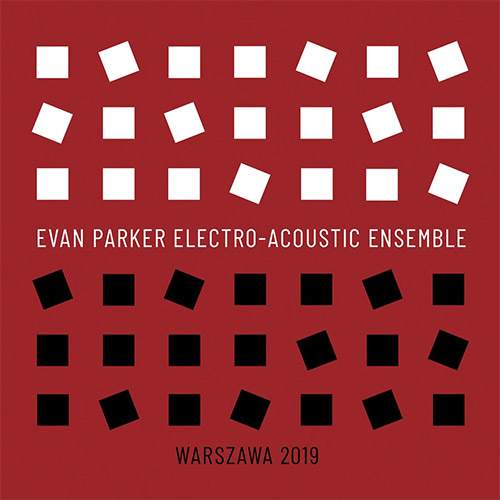

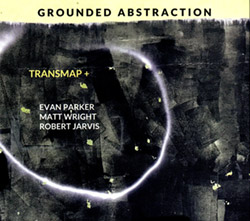

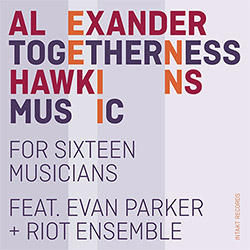
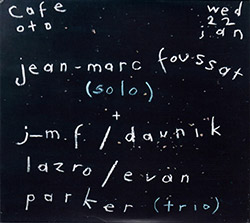
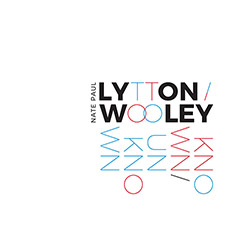
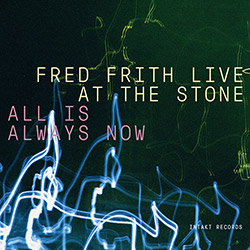
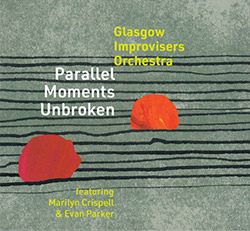

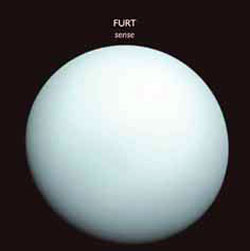
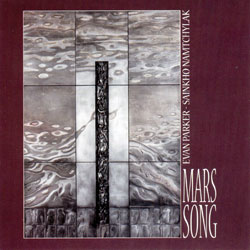

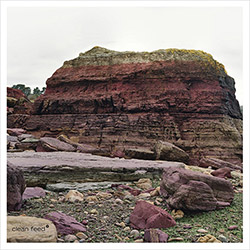
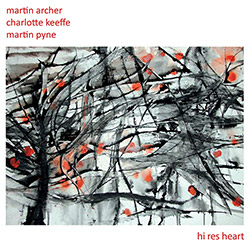
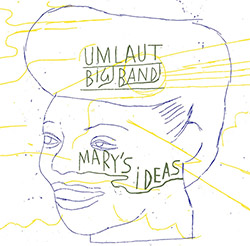
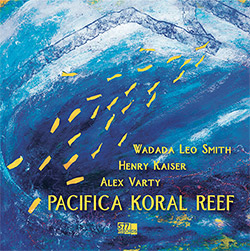
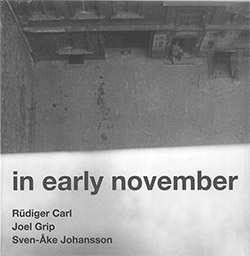
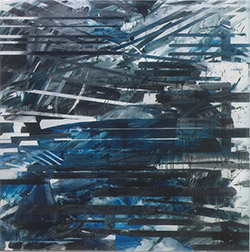





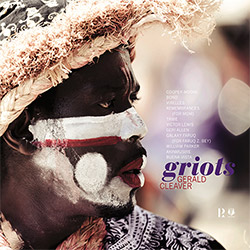
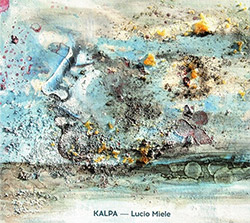




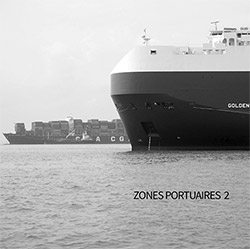
![111 (Michelle / Villamil): Live at Opus 40 [CASSETTE]](https://www.teuthida.com/productImages/misc4/35986.jpg)
![del Pino, Francisco / Charlotte Mundy: The Sea [CASSETTE]](https://www.teuthida.com/productImages/misc4/35987.jpg)

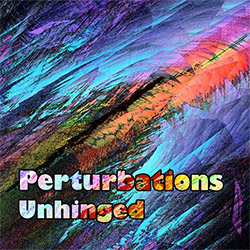

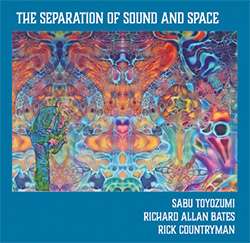
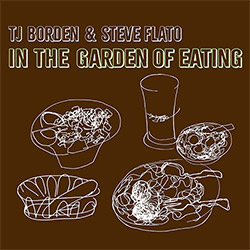

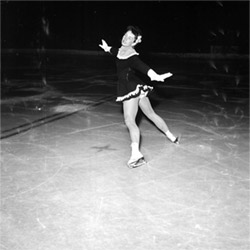
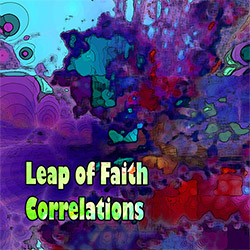

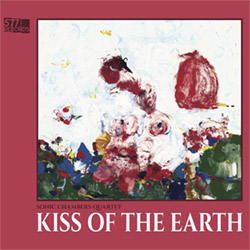

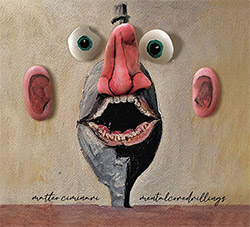
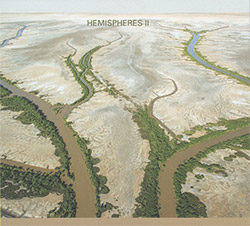
![Niblock, Phill / Anna Clementi / Thomas Stern: Zound Delta 2 [VINYL]](https://www.teuthida.com/productImages/misc4/34623.jpg)
![Yoko, Ono / The Great Learning Orchestra: Selected Recordings From Grapefruit [2 CDs]](https://www.teuthida.com/productImages/misc4/35841.jpg)

![Brotzmann, Peter / John Edwards / Steve Noble / Jason Adasiewicz: The Quartet [2 CDs]](https://www.teuthida.com/productImages/misc4/35975.jpg)
![Brotzmann, Peter / John Edwards / Steve Noble / Jason Adasiewicz: The Quartet [VINYL 2 LPs]](https://www.teuthida.com/productImages/misc4/35976.jpg)
![Thomas, Pat: The Solar Model of Ibn-Al Shatir [VINYL]](https://www.teuthida.com/productImages/misc4/36044.jpg)
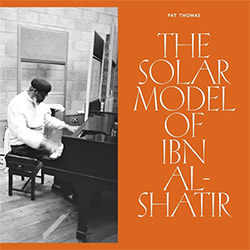



![Rodrigues, Ernesto / Nuno Torres / Guilherme Rodrigues: Whispers In The Moonlight - In Seven Movements [2CDs]](https://www.teuthida.com/productImages/misc4/35765.jpg)



![Cocks, Laura: FATHM [VINYL]](https://www.teuthida.com/productImages/misc4/36055.jpg)













![Schindler, Udo / Sandy Ewen / Damon Smith: Munich Sound Studies Vols. 4, 5 & 6 [3 CDs]](https://www.teuthida.com/productImages/misc4/35966.jpg)
![Turbulence Orchestra & Sub-Units: Smear Out the Difficulties (Double Live) [2 CDs]](https://www.teuthida.com/productImages/misc4/36048.jpg)

![Myers, David Lee : Tin Drop Tear [BOOK w/ DOWNLOAD]](https://www.teuthida.com/productImages/misc4/36030.jpg)

![Ackerley / Prymek / Turner: All Hope With Sleeping Minds [CASSETTE]](https://www.teuthida.com/productImages/misc4/35950.jpg)








![Olencki, Weston : Pearls Ground Down To Powder [VINYL]](https://www.teuthida.com/productImages/misc4/35956.jpg)
![Myers, David Lee: Oculus [2CDs]](https://www.teuthida.com/productImages/misc4/35857.jpg)


![dustsceawung: dustsceawung [CASSETTE w/ Download]](https://www.teuthida.com/productImages/misc4/35753.jpg)




![Halls of the Machine: Atmospheres For Lovers And Sleepers [CASSETTE w/ DOWNLOAD]](https://www.teuthida.com/productImages/misc4/35806.jpg)











![Zorn, John / JACK Quartet: The Complete String Quartets [2 CDs]](https://www.teuthida.com/productImages/misc4/35609.jpg)

![Lonsdale, Eden: Dawnings [2 CDs]](https://www.teuthida.com/productImages/misc4/35480.jpg)







![Sanna, Claudio: Compositori Sardi Contemporanei II [2 CDs]](https://www.teuthida.com/productImages/misc4/35317.jpg)







![Zurria, Manuel: Fame di Vento [3 CDs]](https://www.teuthida.com/productImages/misc4/35167.jpg)

![Electric Bird Noise / Derek Roddy: 8-10-22 [CD EP]](https://www.teuthida.com/productImages/misc4/35970.jpg)








![Elephant9 : Mythical River [VINYL]](https://www.teuthida.com/productImages/misc4/34624.jpg)



![Elephant9 with Terje Rypdal: Catching Fire [VINYL 2 LPs]](https://www.teuthida.com/productImages/misc4/35355.jpg)
![Deerlady (Obomsawin, Mali / Magdalena Abrego): Greatest Hits [VINYL]](https://www.teuthida.com/productImages/misc4/34876.jpg)







![Surplus 1980: Illusion of Consistency [CD]](https://www.teuthida.com/productImages/misc4/35069.jpg)
![Staiano, Moe: Away Towards the Light [VINYL + DOWNLOAD]](https://www.teuthida.com/productImages/misc4/35037.jpg)



![Caveira (Gomes / Sousa / Abras / Ferrandini): Ficar Vivo [VINYL]](https://www.teuthida.com/productImages/misc4/34643.jpg)
![Coley, Byron: Dating Tips for Touring Bands [VINYL]](https://www.teuthida.com/productImages/misc4/17906.jpg)

![Lost Kisses: My Life is Sad & Funny [DVD]](https://www.teuthida.com/productImages/misc4/lostKissesDVD.jpg)